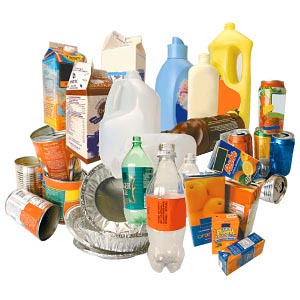EU approves use of five plastics as FCMs
23 January 2018 / Europe
The EU has approved the use of five plastic substances as food contact materials.
A statement in the EU’s Official Journal said that a panel of scientists at the European Food Safety Authority has published "favourable scientific opinions" on the substances, and they should therefore, with stated restrictions, be placed on the EU’s list of authorised substances.
The substances, and their restrictions are:
the monomer 2,4,4′-trifluorobenzophenone. Efsa concluded that this substance is not a safety concern for the consumer if used as co-monomer up to 0.3% w/w, based on the final material in the manufacture of polyether ether ketone plastics;
the monomer 2,3,3,4,4,5,5-heptafluoro-1-pentene. The authority concluded that the substance is not a safety concern for the consumer if used as co-monomer together with tetrafluoroethylene and/or ethylene co-monomers to manufacture fluorocopolymers that are only intended to be applied as polymer processing aids at up to 0.2% w/w of the FCM. For this application, the low molecular mass fraction below 1,500Da in the fluorocopolymer should be no greater than 30mg/kg;
tungsten oxide (WOn (n = 2.72-2.90)). Efsa concluded that the substance is not a safety concern for the consumer if the additive is used as a reheat agent in polyethylene terephthalate (PET). It considered that due to the insolubility of the substance, low migration is expected for any foreseeable use as a reheat additive in PET. Therefore, verification of the migration limit is not necessary. For other technical functions or for use in other polymers, the authority concluded that the migration should not exceed 0.05mg/kg (expressed as tungsten); and
the mixture of methyl-branched and linear C14-C18 alkanamides, derived from fatty acids. It concluded that the substance is not a safety concern for the consumer if used in the manufacture of polyolefin articles intended for contact with all foodstuffs other than fatty foods (as defined by simulant D2) and when its migration does not exceed 5mg/kg food.
The amended regulations will come into force on 7 February.
Earlier this month, MEPs rejected a motion for a total ban on bisphenol A (BPA) in FCMs. The Commission's draft amending Regulation, which proposes a tighter limit on the amount of BPA allowed to migrate from plastic FCMs, is set to be adopted in the next few months. The Regulation should then, according to the draft text, apply six months after entry into force.


